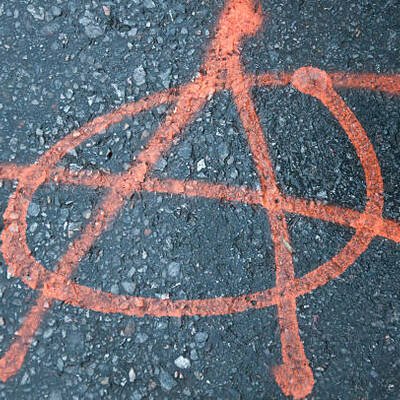- Alan Shearer’s Premier League predictions including Arsenal vs Chelsea
- Netflix Drops Warner Bros Bid After Paramount’s Offer Is Labeled ‘Superior’
- Hungary’s Orbán to Consult Slovakia’s Fico on Joint Response to Ukraine
- Hillary Clinton Testifies in Epstein Probe, Denies Knowing the Financier
- Police Officer Dismissed for Secretly Working as Barista at Bike Shop
- Hillary Clinton Defends Against Epstein Questions, Links to UFOs and Pizzagate
- Green Party Wins Gorton and Denton By-Election, Defeating Reform UK and Labour
- Study Reveals AI Ready to ‘Go Nuclear’ in Wargames Amid Pentagon Lab Tensions
Apple will source most iPhones from India and iPads from Vietnam to avoid the effects of tariffs imposed by Donald Trump, aiming to maintain consumer



Mulberry rejects £83mn takeover bid from Mike Ashley’s Frasers
FT.com Tweet
"“We must create an environment where founders feel confident that their risks will be rewarded."
CITY AM Tweet
Champions League: Arsenal’s first-half show sinks PSG
Score: Arsenal 2-0 PSG
Stadium: Emirates
Arsenal secured their first win in the new Champions League format as they overcame Paris St-Germain at Emirates Stadium.
Mikel Arteta’s side followed an opening draw with Atalanta by taking control with two first-half goals from Kai Havertz’s header and a free-kick from Bukayo Saka that drifted in past PSG goalkeeper Gianluigi Donnarumma.
PSG had their moments, especially when Nuno Mendes and Joao Neves hit the woodwork either side of the break, but the platform for victory was established by a dominant first-half display from Arsenal.
Havertz put them ahead after 20 minutes when he beat Donnarumma to Leandro Trossard’s inviting cross to head home, before the keeper was deceived by Saka’s set-piece from near the touchline as he was unsighted in a packed penalty area.
PSG, stripped of the old superstars such as Kylian Mbappe, Lionel Messi and Neymar, mounted periods of pressure after the break as Arsenal struggled to retain possession, but Arteta felt confident enough to give a debut to Mikel Merino, a £31m signing from Real Sociedad, on another satisfactory night for Arsenal.



London markets made gains on Wednesday morning after an unprecedented missile attack on Israel by Iran that sent oil prices higher and shook global stocks.
CITY AM Tweet
Traders and analysts warned of potential disruption to energy exports if the violence in the Middle East widened, saying energy infrastructure across a region that accounts for about a third of global oil production could be at risk
FT.com Tweet
UK Daily Trending stories
Media Coverage
The story is popular in print and online – and is expected to continue to dominate the news cycle as the crisis unfolds and more information comes out.
Trending – Israel vows to retaliate against Iran
A few stories are trending in the UK this morning, from the ongoing crisis in the Middle East to last night’s Champions League action. The newspapers – in print and online – are dominated by Israel’s vow to retaliate against Iran and the conversation around whether Israel is planning to attack Iranian nuclear sites.
On social media, there is more attention on trending sports and domestic news including Boris Johnson’s BBC interview being cancelled following an embarrassing error and a successful week for the English clubs in the Champions League.
Basic fact
- Israel’s Neyanyahu vows to respond to Iran
- Joe Biden says US and allies won’t support Israel attacking Iran’s nuclear sites
- World leaders have told Netanyahu response must be proportionate
- Biden fears US troops will be drawn into the war if Israel attacks nuclear sites
- A least forty-six people killed by Israel in heavy bombing of Beirut last night
The reaction
The story is mostly featured on the broadsheets – with the tabloids choosing royal and showbiz news on their front pages. Online, the tabloids cover the Middle East but the story does not dominate the websites, nor do they feature in a prominent space.
Several papers pick up on Netanyahu’s vow to retaliate, whilst others lead on Joe Biden’s warning to Israel that retaliation must be proportionate. Biden told Netanyahu the US and its allies won’t support Israel in attacking Iranian nuclear sites.
Some editorials look at America’s perceived weakness, with newspapers arguing every time Biden has told Netanyahu to come back from the brink, he has been ignored. Other papers speculate that the Biden administration – which will end in January – fear US soldiers being drawn into the war. There is also speculation on how the US handling of the conflict will affect the upcoming US presidential election.
Several more right-leaning newspapers suggest the British military is too weak to be of any use to Israel, in articles that feel a little more politically motivated rather than anything else. Fears that the conflict in the Middle East could lead to a rise in terror attacks in the UK is another talking point in the media.
Other right-leaning publications encourage the UK and US to stick with Israel and be prepared to fight. Other editorials keep pushing for diplomacy efforts to be ramped up to quell the growing violence.
Related articles



Trending on social media
What are users saying on Twitter/X?
Read the Tweets!
Israel has confirmed several airforce bases were hit by Iran while civilian damage was "only minor" & caused by shrapnel from interception missiles.
— Alex Nunns (@alexnunns) October 2, 2024
But Keir Starmer said: "The Iranian regime has launched over 200 ballistic missiles at civilian targets in Israel."
A grave lie. pic.twitter.com/WT6w4F3hm1
“Unlike Israel which is carrying out a holocaust in Gaza, Iran struck Israel’s military targets. Because, unlike you, we actually care about human rights.”
— sarah (@sahouraxo) October 2, 2024
—Iranian Professor Marandi teaching a lesson to a Sky News reporter
🔥🔥🔥 pic.twitter.com/Wpm1r9vAKs
We live in a world where there has been more outrage from Western politicians and pundits over Iranian strikes on Israeli military targets that didn’t kill people than there has been over Israeli strikes on Palestinian civilian targets that killed over 50 people. https://t.co/SVCjunBhN1
— Mehdi Hasan (@mehdirhasan) October 3, 2024
Champions League round-up – How the English clubs fared this week
Wednesday night round-up: Villa beat Bayern, Liverpool win at Anfield
Late goal secures historic win for Villa
Aston Villa 1-0 Bayern Munich
Jhon Duran came off the bench to secure a dramatic victory for Aston Villa over Bayern Munich in the Champions League at a jubilant Villa Park. In a match steeped in history, echoing Villa’s 1982 European Cup triumph, Duran’s composed finish in the 79th minute replicated that iconic scoreline. Villa, under Unai Emery, continued their strong start to the campaign following a 3-0 win against Young Boys. Though Pau Torres had a goal disallowed, Duran’s fifth substitute goal this season, combined with a crucial late save by Emi Martinez from Harry Kane, sealed the victory in Villa’s first home European fixture in 41 years.
Salah shows no signs of slowing down
Liverpool 2-0 Bologna
Arne Slot’s first home Champions League match as Liverpool manager ended in victory, as goals from Alexis Mac Allister and Mohamed Salah secured a 2-0 win over Bologna at Anfield. Slot, who has now won eight of his first nine games, saw his side take the lead early through Mac Allister’s close-range finish from a Salah cross. Bologna, making their Champions League debut, pressed hard, with Dan Ndoye hitting the post and Alisson making key saves. Salah then sealed the win with a stunning strike, curling in his 49th Champions League goal to continue Slot’s impressive start.
Biggest Shock: Real Madrid lost to Lille!
Holders Real Madrid suffered their first Champions League defeat since May 2023, losing 1-0 to Lille at the Pierre-Mauroy Stadium. Jonathan David’s penalty, awarded after a VAR review confirmed Eduardo Camavinga’s handball, secured the win for Lille, who impressed throughout. Despite Real’s late pressure, including near-misses from Antonio Rudiger and Arda Guler, Lille held on to earn their first victory in the competition after losing to Sporting in their opener. The loss also ended Real’s 36-match unbeaten streak in all competitions, with young talents Endrick and Jude Bellingham struggling to make an impact.
Tuesday night round-up: Havertz shines, City dominates
Saka and Havertz put on a performance
Arsenal 2-0 PSG
Arsenal secured their first win in the new Champions League format with a 2-0 victory over Paris Saint-Germain at the Emirates Stadium. Kai Havertz opened the scoring with a header from Leandro Trossard’s cross, followed by Bukayo Saka’s free-kick, which drifted past PSG keeper Gianluigi Donnarumma. Despite PSG hitting the woodwork twice, Arsenal’s dominant first-half performance set the stage for the win. PSG, without stars like Mbappe and Messi, applied pressure after the break, but Arsenal held firm. New signing Mikel Merino also made his debut, capping a solid night for Mikel Arteta’s side.

Champions League: Arsenal’s first-half show sinks PSG
Phil Foden shines in dominant performance
Slovan Bratislava 0-4 Man City
Phil Foden starred with a goal and an assist as Manchester City cruised to their first Champions League win of the season, beating Slovan Bratislava 4-0. Ilkay Gundogan opened the scoring with a deflected strike in the eighth minute, followed by Foden’s composed finish just seven minutes later. City dominated, hitting the woodwork three times before Erling Haaland made it 3-0 with his 11th goal of the season. Foden then set up James McAtee for his first City goal in the 74th minute, sealing a comfortable win. Slovan’s keeper, Dominik Takac, kept the scoreline down with several key saves.
What to Watch
Amazon prime - TV & Netflix
What to Watch
Love Sports
- Good News
- Readers Digest
What to Watch
Amazon prime - TV & Netflix
What to Watch
Love Sports
- Good News
- Readers Digest
Subscribe to Updates
Get the latest creative news from FooBar about art, design and business.


